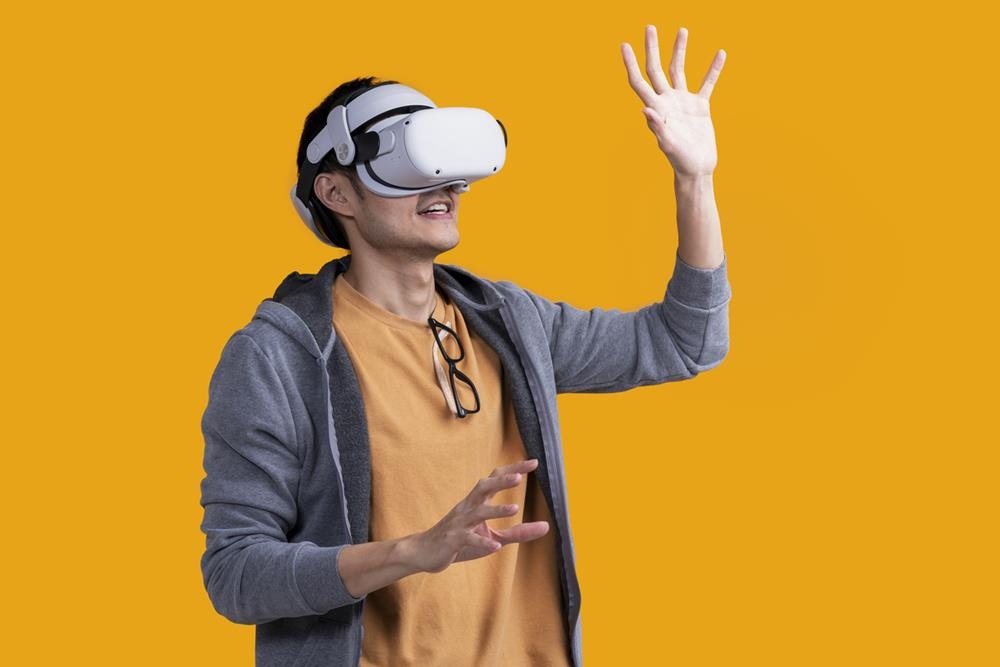In today’s digital age, the landscape of entertainment has undergone a dramatic transformation. Gone are the days when traditional media like television, radio, and print dominated our leisure time. Instead, the advent of the internet and mobile technology has given rise to a multitude of online entertainment options that cater to diverse tastes and preferences. From streaming blockbuster films and binge-worthy TV series to engaging in immersive virtual realities and competitive gaming, the ways we entertain ourselves have expanded far beyond what was once imaginable.
This shift is not just about the variety of content available but also about how accessible entertainment has become. Anyone with an internet connection can now enjoy a vast array of entertainment forms anytime, anywhere. This article explores the different types of online entertainment that have emerged, highlighting how each has contributed to reshaping our entertainment experiences in the 21st century. Whether you’re a hardcore gamer, a movie buff, or just someone looking to pass the time, the digital world has something exciting to offer.
Video Streaming Services
Video streaming services have revolutionized the way we consume movies and television shows, making it possible to access a vast library of content with just a few clicks. These platforms offer a convenient alternative to traditional TV, allowing viewers to watch their favorite shows and movies on-demand without the constraints of a broadcasting schedule.
Popular Platforms
Some of the most popular video streaming platforms include Netflix, Amazon Prime Video, Hulu, and Disney+. Each service offers a unique blend of original programming and licensed content, catering to a wide range of viewer preferences. For instance, Netflix is renowned for its original series and films, while Disney+ is the go-to platform for family-friendly entertainment, including Disney classics, Pixar animations, Marvel movies, and Star Wars series.
Variety of Content
The content on streaming platforms varies greatly, ranging from genres like drama, comedy, and horror to niche interests like documentaries, anime, and foreign films. This diversity not only broadens the viewer’s choices but also allows platforms to cater to specific demographics, enhancing user engagement.
- Movies and TV Shows: Full seasons of TV series are available alongside a diverse movie selection, encouraging binge-watching.
- Documentaries: These platforms have also become a popular venue for documentaries, offering both in-depth series and feature-length films that explore a variety of topics.
- Exclusive Releases: Many streaming services often secure exclusive rights to certain films and shows, making them the only place to watch these titles.
Online Gaming
Online gaming is a vast and diverse field that spans numerous genres and platforms, attracting millions of players worldwide. This segment of digital entertainment offers everything from simple puzzle games to complex multiplayer online battle arenas (MOBAs) and massive multiplayer online games (MMOs).
Types of Online Games
- Massively Multiplayer Online Games (MMOs): MMOs allow thousands of players to interact in the same virtual worlds. These games are known for their expansive environments and deeply immersive gameplay. Popular examples include “World of Warcraft” and “EVE Online.”
- Casual Games: These games are usually simple to understand and can be played in short bursts, making them highly accessible to a broad audience. Many are available on mobile devices or via web browsers, such as “Candy Crush” or “Words with Friends.”
- Mobile Games: With the rise of smartphones, mobile games have become a dominant force in the gaming industry. These games range from simple mechanics like those found in “Angry Birds” to more involved experiences similar to traditional console games.
- E-Sports: Competitive gaming, or e-sports, has turned online gaming into a spectator sport. Games like “League of Legends” and “Dota 2” host tournaments with massive followings and significant prize pools, broadcasting matches to audiences around the globe.
The Impact of Online Gaming
Online gaming not only provides entertainment but also fosters community and social interaction. Many games feature built-in communities and chat functionalities, allowing players from different parts of the world to collaborate or compete with each other. The social aspect of gaming can be as significant as the gameplay itself, with friendships and rivalries developing over shared digital experiences.
- Community Building: Games often include features like guilds or clans, which can help players build communities and network with others.
- Interactive Features: Live streaming, in-game communication tools, and integrated social media enhance the interactive experience, connecting players more deeply with the game and each other.
Online Gambling and Betting
Online gambling and betting have become prominent forms of entertainment thanks to the internet’s ability to provide instant access to a variety of betting opportunities. From virtual casinos to sports betting platforms, online gambling encompasses a wide range of activities that cater to different interests and skill levels.
Types of Online Gambling
- Online Casinos: These virtual platforms offer a digital version of traditional casino games such as slots, roulette, blackjack, and poker. Players can participate in games either through simulated environments or via live dealer sessions that stream a real dealer in real-time, enhancing the authenticity of the experience.
- Sports Betting: Online sports betting allows users to place wagers on various sporting events around the world. This includes bets on outcomes of matches, points scored, and other event-specific conditions across sports like football, basketball, baseball, and more.
- Fantasy Sports: In fantasy sports, participants assemble virtual teams of real players of a professional sport. These teams compete based on the statistical performance of those players in actual games. Platforms like DraftKings and FanDuel allow users to enter daily and weekly fantasy sports contests.
- E-Sports Betting: With the rise of e-sports, betting on competitive video gaming has also seen significant growth. Spectators can bet on the outcomes of e-sports competitions, mirroring traditional sports betting but with popular games like “Counter-Strike: Global Offensive,” “Dota 2,” and “Overwatch.”
Legal Considerations
The legality of online gambling varies significantly from one jurisdiction to another, with some countries having clear regulations that allow these activities, while others strictly prohibit them. It’s important for users to be aware of their local laws before engaging in online gambling to avoid legal repercussions.
- Regulation and Licensing: Many countries require online gambling platforms to obtain licenses and adhere to regulatory standards to protect users and ensure fair play.
- Responsible Gambling: Credible platforms promote responsible gambling practices, providing tools and resources to help users manage their gambling habits, such as deposit limits and self-exclusion options.
Online gambling adds a layer of excitement and risk to the entertainment experience, appealing to those who enjoy games of chance and skill. It combines the thrill of potential financial gain with the engagement of interactive, competitive, and strategic elements. As technology continues to evolve, features like virtual reality are expected to further enhance the immersive experience of online gambling.
Virtual Reality and Augmented Reality
Virtual Reality (VR) and Augmented Reality (AR) represent cutting-edge technologies that are redefining the boundaries of digital entertainment. These immersive technologies offer unique, interactive experiences that blend virtual components with the real world, fundamentally transforming how users perceive and interact with digital content.
Virtual Reality (VR)
Virtual reality involves the use of VR headsets to place users inside a fully immersive digital environment. This technology allows users to interact with 3D worlds, offering an intense level of engagement that mimics real-life experiences.
- Gaming: VR gaming is one of the most popular applications, with games like “Beat Saber” and “Half-Life: Alyx” providing deeply immersive, interactive experiences that traditional gaming cannot match.
- Educational Applications: Beyond entertainment, VR is used in educational settings to simulate historical events, scientific phenomena, and more, offering students a unique way to learn and explore complex subjects.
- Virtual Tourism: VR can transport users to distant locations—from historic sites to foreign cities—allowing for virtual travel experiences that are particularly appealing in times when physical travel might be restricted.
Augmented Reality (AR)
Augmented reality enhances the real world by overlaying digital information and graphics onto the physical environment. Unlike VR, which creates a completely artificial environment, AR uses the existing environment and adds information to it in real time.
- Mobile Applications: AR has gained widespread popularity through mobile apps. Games like “Pokémon GO” and tools like Google’s AR-enabled maps enhance real-world interactions with digital overlays, making them more engaging.
- Retail and Design: AR technology allows consumers to visualize products in their own space before purchasing, such as furniture or home decor, significantly enhancing the shopping experience.
- Educational Tools: AR can also be utilized in education, providing interactive, 3D representations of content that can be viewed from different angles and with detailed explanations, improving understanding and retention.
The integration of VR and AR into online entertainment and beyond is just beginning. As these technologies continue to evolve, they are set to redefine not just how we play and learn but also how we connect with others and the world around us.
Music and Podcast Streaming
Music and podcast streaming services have become fundamental to the digital entertainment landscape, offering on-demand access to vast libraries of audio content. These platforms cater to diverse tastes and preferences, allowing users to discover, listen to, and share music and spoken word content from anywhere in the world.
Music Streaming Services
Music streaming has transformed the way we access and enjoy music. Services like Spotify, Apple Music, and Tidal allow users to listen to millions of songs across different devices without needing to download individual tracks.
- Personalized Playlists: These platforms use sophisticated algorithms to suggest music based on users’ listening habits, providing personalized playlists and enhancing the discovery of new artists and genres.
- Exclusive Content: Many music streaming services secure exclusive releases from artists, offering early or unique access to new tracks and albums.
- High-Quality Audio: For audiophiles, some services offer high-fidelity sound options that improve the listening experience by delivering higher quality audio than typical streaming.
Podcast Streaming
Podcasts have surged in popularity as a form of on-the-go entertainment. Platforms like Stitcher, Audible, and Spotify host podcasts on a myriad of topics, from true crime and science to self-help and storytelling.
- Diverse Content: There is virtually a podcast for every interest, whether it’s educational content, entertainment, news, or niche hobbies.
- Community Engagement: Many podcasts foster a sense of community among listeners through interactive elements like Q&A sessions, social media engagement, and live- streaming episodes.
- Accessibility: Podcasts are easily accessible and often free to listen to, making them a popular choice for daily commutes, workouts, or background listening.
Social Media Platforms
Social media platforms have redefined online entertainment by facilitating interactive, user-generated content that enables users to connect, share, and create media. These platforms are not only tools for social interaction but have become significant sources of entertainment in their own right.
Major Platforms and Their Unique Features
- Facebook: Facebook offers a mix of personal updates, news articles, business promotions, and entertainment through videos and live streaming. Its broad audience makes it a versatile platform for various forms of digital engagement.
- Instagram: Known for its visual content, Instagram is the hub for sharing photos and videos. It has expanded to include features like Stories, IGTV for longer videos, and Reels for short-form video content, engaging users with a dynamic mix of media.
- TikTok: TikTok has risen rapidly in popularity due to its short-form video format, which is highly engaging and easy to consume. It emphasizes creativity and has a powerful algorithm that helps users discover an endless stream of personalized content.
- Twitter: Twitter serves as a microblogging service where users can post short messages, or “tweets,” which are ideal for real-time updates, news, and quick thoughts. It’s particularly popular for its role in social commentary and as a platform for various voices in media.
- YouTube: As a video-sharing service, YouTube allows users to upload, view, and share videos. It covers a vast range of content from educational materials and tutorials to entertainment shows and vlogs.
Social media platforms continue to evolve, integrating more features that enhance user interaction and content discovery. As they grow, their influence on our daily entertainment and the broader cultural context deepens, reflecting the dynamic nature of how we connect and entertain ourselves in the digital age.
Online Literature and Audiobooks
The digital revolution has transformed the traditional literary world, introducing new forms of accessing and enjoying literature through online platforms and audiobooks. These advancements make reading and literary exploration more accessible and convenient, catering to the modern reader’s lifestyle.
Online Literature Platforms
Online literature platforms such as Kindle, Wattpad, and Scribd provide readers with instant access to a vast range of books, short stories, and other written content available digitally. These platforms offer various features:
- E-books: Readers can purchase or subscribe to services that offer thousands of e-books, which can be read on multiple devices, including e-readers, tablets, and smartphones.
- Serialized Content: Some platforms allow authors to publish their work in segments, enabling readers to follow along as new chapters are released. This format is especially popular on platforms like Wattpad, where community feedback can influence the course of the story.
- Interactive Features: Many online reading platforms include interactive elements such as the ability to leave comments, highlight text, and engage directly with authors and other readers.
Audiobooks
Audiobooks have seen a surge in popularity, providing an alternative way to consume literature that fits easily into busy schedules. Platforms like Audible, Google Play Books, and Apple Books offer extensive catalogs of audiobooks, ranging from latest bestsellers to timeless classics.
- Convenience: Audiobooks allow multitasking—listening while commuting, working out, or performing chores, which makes them highly appealing to people who may find it hard to dedicate time to sit down with a physical book.
- Performance Element: Many audiobooks are narrated by talented voice actors or even the authors themselves, adding an enriching layer of performance that can enhance the emotional and narrative impact of the text.
- Accessibility: Audiobooks are a vital resource for visually impaired individuals or those with reading disabilities, making literature more accessible to a broader audience.
Interactive and Immersive Experiences
The realm of online entertainment is continually evolving, with interactive and immersive experiences pushing the boundaries of what digital platforms can offer. These experiences are designed to engage users more deeply than traditional passive consumption, using technology to create a participatory environment where the audience influences or becomes part of the story.
Types of Interactive and Immersive Experiences
- Virtual Reality (VR) and Augmented Reality (AR): VR transports users to completely virtual environments where they can interact with elements in a 3D space, making it popular for gaming and simulations. AR overlays digital information onto the real world, enhancing everyday experiences with interactive elements visible through devices like smartphones or AR glasses.
- Interactive Web Series: These are video series where viewers can make choices that affect the storyline, leading to multiple possible endings. Platforms like Netflix have experimented with this format in series like “Black Mirror: Bandersnatch.”
- Online Escape Rooms: Mimicking the physical escape room experience, these digital versions require players to solve puzzles and decode messages to “escape” a virtual room, often within a set time limit.
- Interactive Storytelling Apps: Apps like “Episode” or “Choices” allow users to make decisions for characters, influencing the narrative flow and outcomes of the story. These apps combine textual storytelling with visual elements, creating a game-like experience.
Interactive and immersive experiences represent a significant shift in the entertainment industry, moving from passive to active participation. They not only entertain but also empower users to influence and shape their entertainment journey, heralding a new era of digital engagement.
Conclusion
The digital landscape has dramatically expanded the scope of online entertainment, offering a diverse array of options that cater to all interests and lifestyles. From the immersive worlds of virtual and augmented reality to the personalized streams of music and podcasts, interactive web series, and the global community of social media platforms, there’s something for everyone.
These innovations not only enhance our entertainment experiences but also connect us in new and exciting ways. As technology continues to evolve, so too will the ways we entertain, learn, and interact with each other, promising a future rich with new possibilities and ever-more engaging forms of digital entertainment.
Additional Ideas
- Most people prefer to come up with certain things that can make them engaged and contribute something to their knowledge. Without entertainment, nothing can go right for them. With the advancement in technology and the internet, online entertainment has become very popular. In fact, most people no longer need to go out to make the most of their time. This is due to the different forms of online entertainment that they can choose from.
- There are many other social media platforms today that people enjoy using, such as Twitter and Instagram. These social media websites are used for both entertainment and professional reasons. For example, you can get answers to your questions by checking out Interactive Entertainment Group, Inc.
- At the present time, you can play online versions of your favorite classic casino games. You also have the option to bet on sports online with just a few clicks. One of the well-known platforms in this space is Mostbet, offering a wide range of betting options, live casino games, and sports betting opportunities, making it a go-to for many online gaming enthusiasts.








